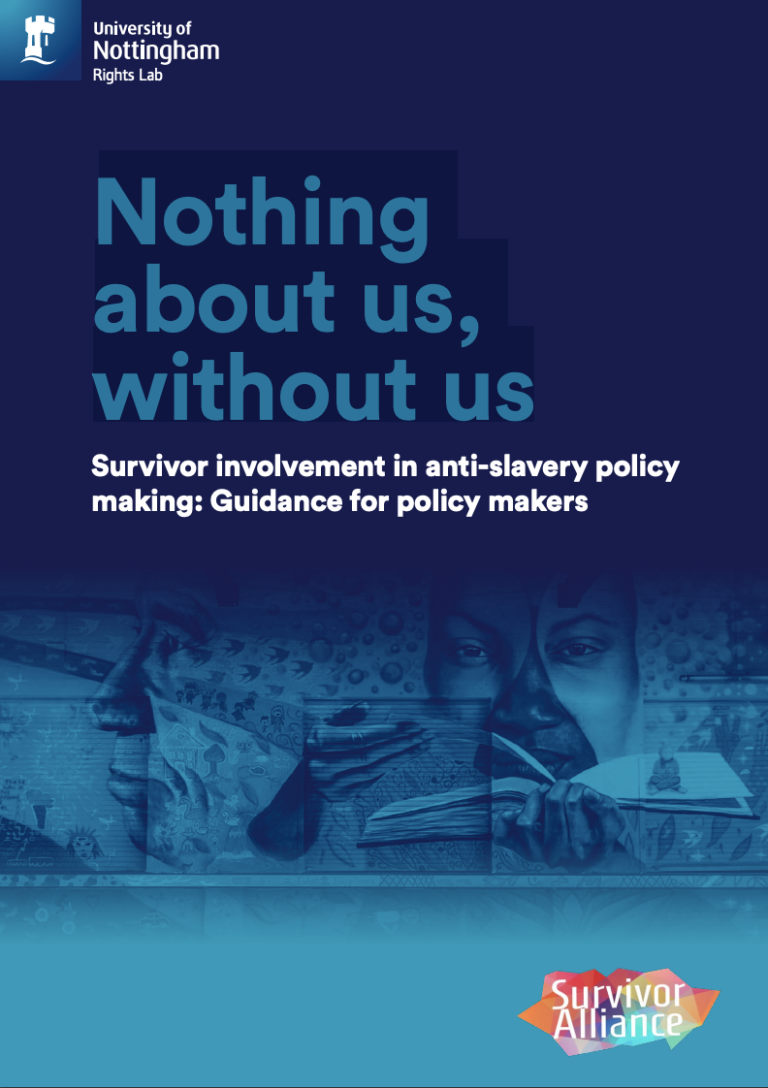This guidance is intended to support local and national policy makers in government, business and public services who wish to involve survivors of modern slavery in their work, whether that be in developing policy, legislation and guidance, or shaping and delivering services. Although this guidance was produced in the UK and has a UK focus, it is intended for adaptation and use in other country contexts.
The purpose of this practical guidance is to provide an overview of some of the key issues and questions that you may wish to consider before embarking on this work. Whilst this guidance aims to provide a useful starting point for professionals working in the anti-slavery and anti-trafficking sector, it is not intended to be the definitive guide to working with survivors and is not a substitute for face-to-face training. Links to further resources can be found in Annex 1.

